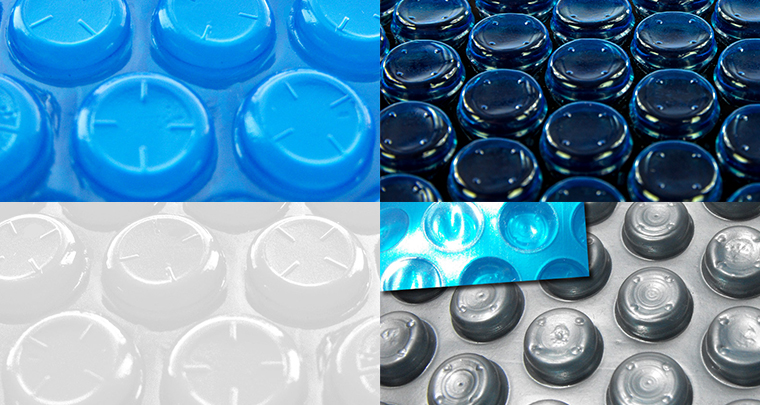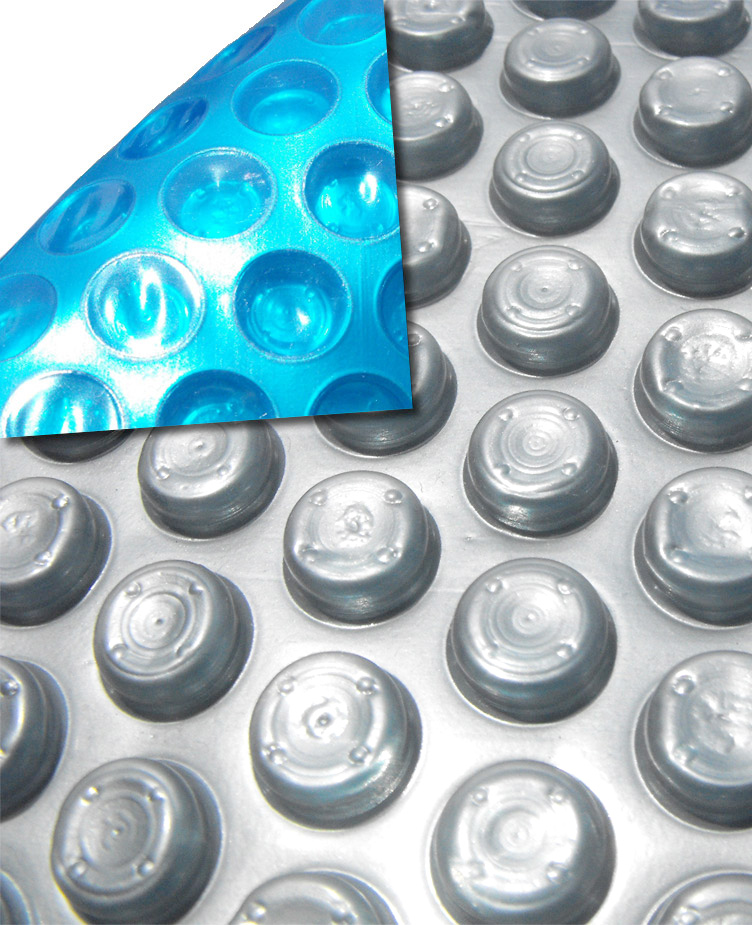Solar Pool Cover Color: Does It Really Matter?

Choosing the right color for a solar pool cover is vital to find the best fit for you and your pool. Read on to find out which color solar pool cover is best for you!
What Do Solar Covers Do?
Let’s start by explaining what a solar cover (also known as a solar blanket) does and how it can benefit your swimming pool.
Solar covers have multiple benefits, so no matter what color you choose, they’re a must-have in your pool care routine.
The first benefit is heating your pool - and maintaining that heat. The air-filled bubbles of the solar cover are heated by the sun and then transferred into the water. This means that during the day, your pool is being heated by up to 15°F for free by the sun. But it’s not just about heating the pool, it’s about retaining the heat you gain. An uncovered pool loses heat quickly, and solar covers help to reduce that heat loss, so no matter how you heat your pool - through a solar cover or a pool heater - adding a solar cover with the bubbles facing down allows it to stay warmer for longer.
Another benefit is preventing the evaporation of water from your pool. Water loss through evaporation doesn’t just cost you the water that needs to be refilled, but can also cost you through the chemicals you need to add to rebalance that water. Sun2Solar® covers, which we recommend, prevent 95% of water evaporation!
Many chemicals, such as chlorine, are degraded by the sun's UV rays. Specific solar covers can reduce that degradation, meaning you must replace those chemicals less often.
Last but not least, solar covers can prevent debris from falling into your pool. They won’t be as effective as a safety cover, but they can prevent most leaves, bugs, and other debris from entering your pool and help keep it clean and clear.
What Color Solar Cover Is Best?
Each color of solar cover provides different benefits. Below, we’ll discuss each color in turn, along with its pros and cons, so you can make an informed decision about which is best for you.
We recommend Sun2Solar® Solar Covers. They come in all the covers mentioned below and cover virtually every size and shape of pool you need.
Clear

Clear covers maximize sunlight penetration and heat your pool better than the other colors on this list. They transfer most of the UV light directly into the water rather than retaining the heat themselves, leading to a higher temperature gain in the water. They are ideal for when the sun is shining in your yard for long periods of time—over 6 hours of direct sunlight a day is best. Clear solar covers offer the best heat absorption into your pool of all the other colors of solar covers on our list.
However, this means less heat is contained in the cover, which means keeping that heat retained throughout the night. And perhaps the most significant downside—clear covers do next to nothing to stop UV rays from entering your pool, which means they won’t stop the degradation of pool chemicals.
Pros:
Cons:
Clear covers allow more UV rays through than other covers, potentially accelerating chlorine breakdown
Clear covers also do not have as strong heat retention as the other options on our list
Best For:
Blue

Blue solar covers are often considered standard due to their low price point and general features. They are better at trapping heat in your pool than clear covers and, more importantly, prevent UV rays from degrading the chemicals in your pool.
However, whereas blocking UV rays can reduce the amount of chemicals you need to add to your pool, the trade-off is that it can block much of the heat entering your pool.
Pros:
Cons:
Best for:
Black/Silver "Space Age"

The Space Age Solar Cover is the best choice for heat retention, as it absorbs heat through its silver side and traps heat with the silver side. It is designed to combine the benefits of both black and silver solar covers.
The top (black) layer helps to absorb sunlight and adds durability to the cover. The silver side reflects heat into the pool and UV rays away from pool chemicals to slow degradation.
Pros:
Improved heat retention
Reduced chemical use
Higher durability
Cons:
Best for:
FAQs
Do the bubbles go up or down?
Short answer: The bubbles always go down. For a more in-depth explanation and installation tips, check out our blog: Pool Solar Cover: Bubbles Up or Down? (And Other Easy Installation Tips)
How fast does a solar cover heat a pool?
A solar pool cover can increase a pool's temperature by 10 to 15 degrees Fahrenheit in about 6 hours.
Can you run a pool pump with a solar cover on the water?
Yes! Solar covers are designed to float, so they're lightweight and won't interfere with your pool's filtration or water circulation.
Can a solar cover reduce my energy bills?
Yes - by retaining heat, solar covers decrease the need for additional heating, leading to energy savings if you use a heater to heat your pool.
How do I trim a solar cover to fit my pool?
Lay the cover over the pool and let it settle for a day or two to smooth the wrinkles. Then, trim it to fit by using scissors or a razor knife.






 Pools
Pools Spas
Spas Liners
Liners Equipment
Equipment Covers
Covers Accessories
Accessories Cleaning
Cleaning  Pool Fun
Pool Fun  Clearance
Clearance



